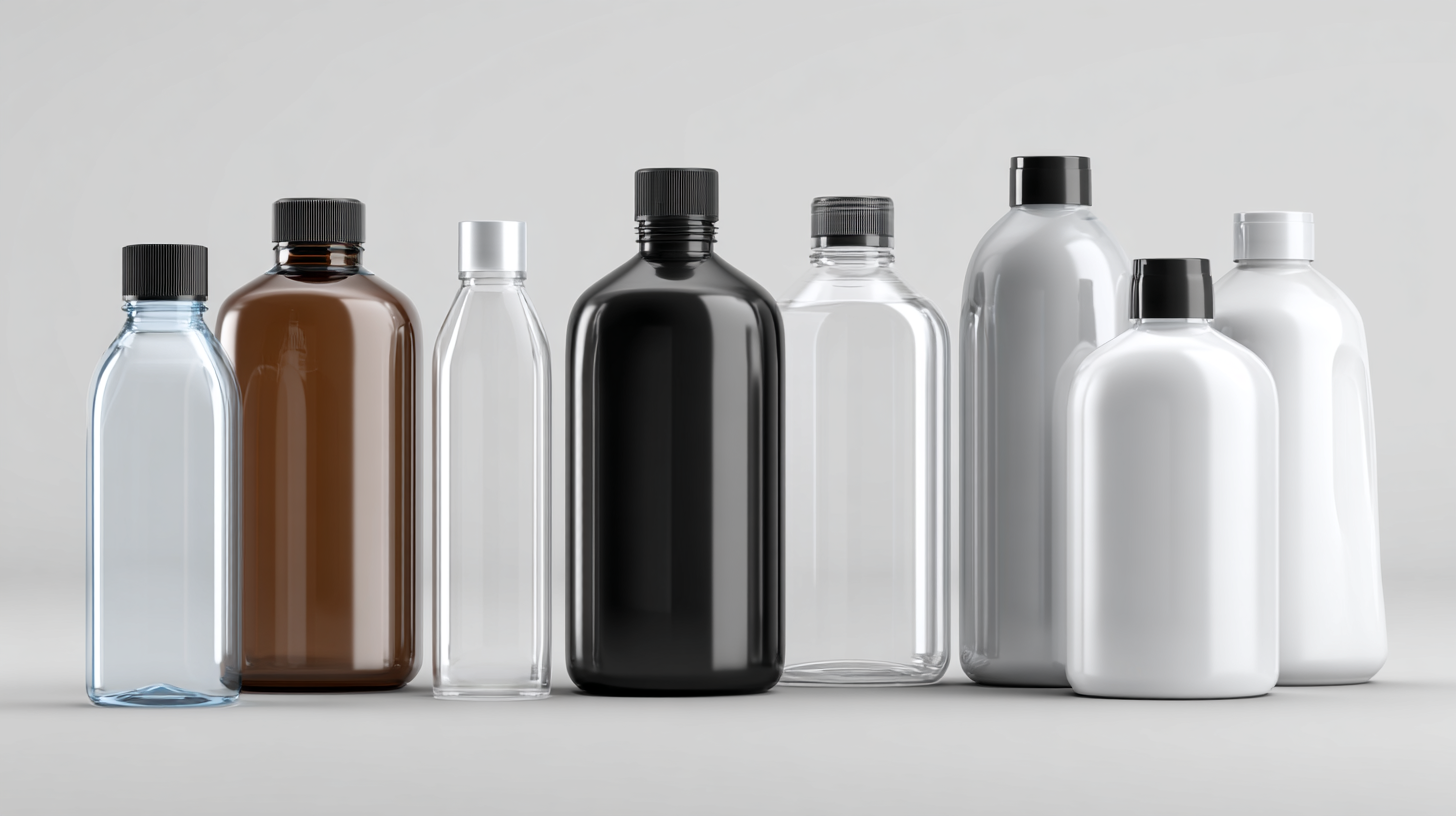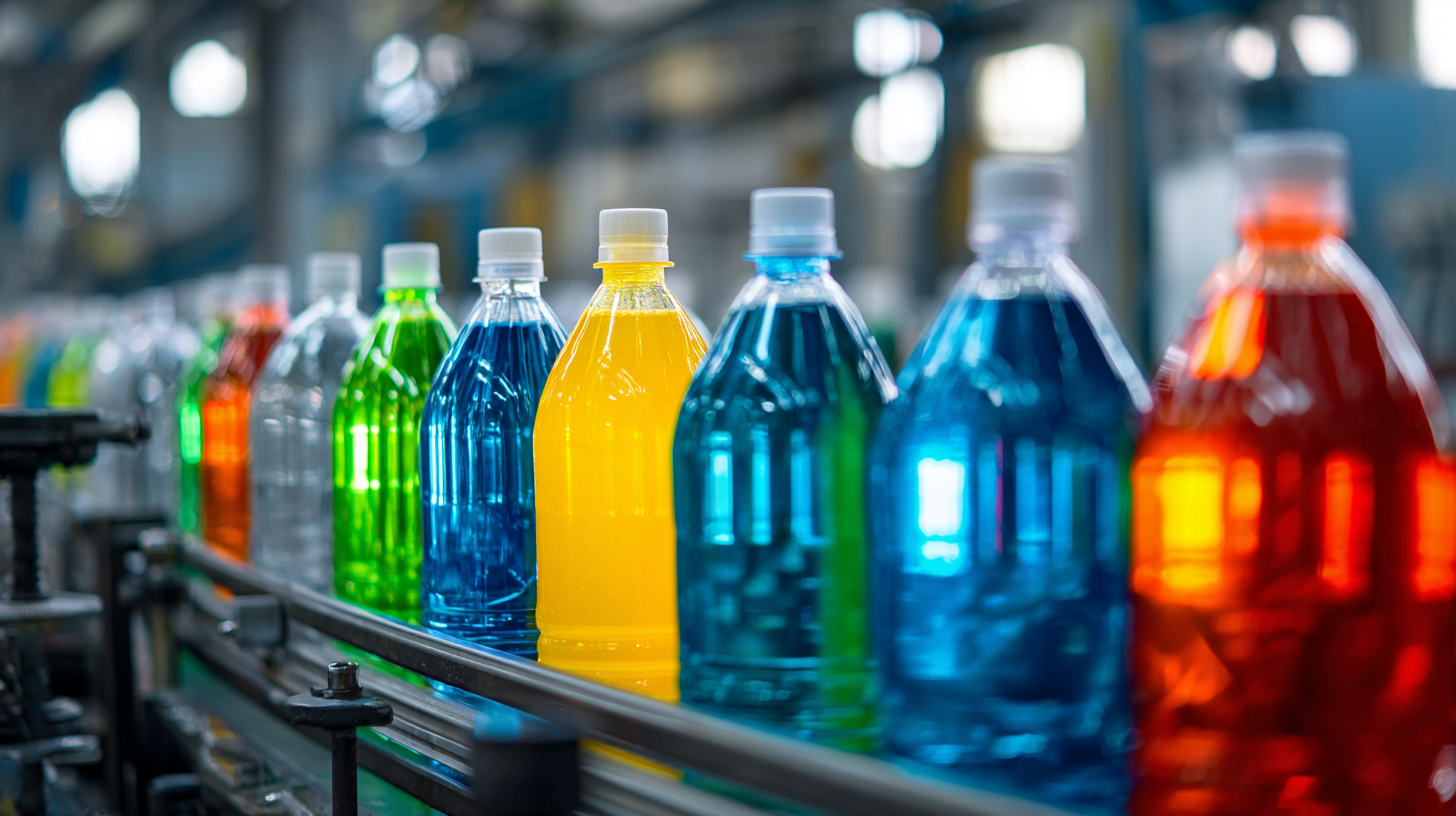
Finding the Right Supplier for Best Plastic Bottle Packaging Tips and Checklist Guide
In the ever-evolving world of packaging, selecting the right supplier for your Plastic Bottle Packaging needs is crucial for product success and brand integrity. With countless options available in the market, businesses often find themselves overwhelmed by the choices they face. This guide aims to provide essential tips and a comprehensive checklist to streamline the supplier selection process, ensuring that you align with a partner who can meet your specific requirements. From understanding material options to assessing supplier capabilities, this article breaks down the critical factors that will help you make informed decisions. Ultimately, the right supplier not only enhances the quality of your packaging but also contributes to your overall operational efficiency and customer satisfaction. Let’s delve into the key considerations to keep in mind while navigating the landscape of Plastic Bottle Packaging suppliers.

Identifying Key Qualities in a Reliable Plastic Bottle Supplier
When choosing a supplier for plastic bottle packaging, it’s crucial to identify key qualities that indicate reliability and quality. First and foremost, consider the supplier's experience in the industry. A supplier with a proven track record is more likely to understand your specific needs and provide products that meet industry standards. Look for testimonials or case studies that demonstrate their work with similar businesses. This can give you confidence in their capability to deliver quality products consistently.
Another important quality is communication. A reliable supplier should be responsive and transparent, providing clear information about pricing, production timelines, and any potential issues that may arise. Effective communication ensures that expectations are managed and that you are kept informed throughout the process. Additionally, check if the supplier prioritizes sustainability by offering eco-friendly packaging options. This not only aligns with consumer preferences but also reflects a commitment to responsible business practices, which is increasingly important in today’s market. By considering these factors, you can select a supplier that not only meets your packaging needs but also adds value to your brand.

Understanding the Importance of Material Quality in Packaging Solutions
In today's packaging landscape, the importance of material quality cannot be overstated, particularly as sustainability becomes a pivotal criterion for consumers. A recent survey indicated that nearly 70% of U.S. consumers are willing to pay more for sustainable packaging options. This marks a significant shift in consumer sentiment, reflecting increasing concern over plastic pollution and climate change. Packaging that utilizes high-quality, eco-friendly materials not only meets consumer demand but also enhances brand reputation as environmentally responsible.
Moreover, the move towards sustainable packaging should consider the entire life cycle of materials. Companies are now encouraged to adopt holistic approaches that include sourcing sustainable materials, investing in reusable packaging systems, and being transparent about their environmental impact. Insights from a recent global consumer survey highlight that consumers are particularly interested in understanding how their packaging choices contribute to sustainability efforts, with many expressing a preference for brands that prioritize both innovative design and environmental considerations. As a result, businesses that strategically select suppliers focused on high-quality, sustainable packaging solutions will be better positioned to thrive in this evolving market.
Navigating the Compliance Landscape for Global Distribution of Plastic Bottles
Navigating the compliance landscape for the global distribution of plastic bottles is crucial for businesses eager to expand their market reach. According to a recent report by Grand View Research, the global plastic bottle market is projected to reach $500 billion by 2025, highlighting the importance of adhering to regulatory standards to facilitate robust international trade. Different regions impose varying regulations concerning materials, labeling, and safety standards, making it imperative for suppliers to stay informed about compliance requirements.

In the European Union, for instance, the Packaging and Packaging Waste Directive mandates specific criteria for the recyclability and sustainability of packaging materials. A study by the European Plastics Converters estimates that around 60% of plastic packaging is recycled, which emphasizes the necessity for suppliers to demonstrate their commitment to environmentally friendly practices. Likewise, in the United States, the Food and Drug Administration (FDA) regulates plastic bottles intended for food and beverage packaging, requiring strict adherence to safety guidelines. Suppliers must familiarize themselves with these compliance frameworks to avoid costly penalties and foster a successful global distribution strategy.
Evaluating Supplier Capabilities: Production, Flexibility, and Delivery Time
When it comes to finding the right supplier for plastic bottle packaging, evaluating supplier capabilities is critical. Factors such as production capacity, flexibility, and delivery time can significantly impact your supply chain resilience. According to recent logistics service reports, the 3PL and 4PL market is projected to grow significantly, with a forecasted market size reaching over $60 billion by 2030. This growth indicates a robust logistics environment where suppliers can offer enhanced flexibility and responsive production lines tailored to your needs.
Tips for Evaluating Suppliers:
- Assess Production Capabilities: Ensure the supplier has the technology and machinery to meet your specific packaging requirements. A capable supplier should be able to accommodate varying order volumes without compromising on quality.
- Evaluate Flexibility: In today's fast-paced market, the ability to pivot quickly in response to changing demands is invaluable. Look for suppliers that have adaptive production processes that can scale up or down as needed.
- Investigate Delivery Times: Timelines are critical in maintaining supply chain efficiency. Analyze the supplier's track record for on-time deliveries and establish clear communication channels to foster reliability in logistics.
By integrating these guidelines, you can enhance your partnership with suppliers and fortify your supply chain against potential disruptions.
Building Strong Partnerships: Communication and Support with Your Supplier
Building strong partnerships with your suppliers is essential for ensuring successful plastic bottle packaging solutions. Effective communication is the cornerstone of these relationships. Regular updates, feedback sessions, and open channels for discussion foster trust and understanding. This approach not only helps in resolving issues quickly but also encourages innovation, as both parties feel valued and invested in the collaboration.
When choosing a supplier, consider implementing a few key tips. First, prioritize suppliers who demonstrate a commitment to transparent communication and reliability. Establish clear expectations from the beginning, including timelines, quality standards, and pricing. Next, invest time in regular check-ins to assess progress and address any concerns. This not only strengthens the bond but also helps in aligning goals and strategies.
Additionally, a supportive relationship involves shared accountability. Work together on projects, celebrating successes and addressing challenges collectively. This collaborative spirit not only enhances efficiency but also builds resilience in the supply chain, preparing both parties to navigate uncertainties and market fluctuations effectively.
Plastic Bottle Packaging Supplier Evaluation
This bar chart illustrates key evaluation criteria for selecting the right supplier for plastic bottle packaging. Each criterion is scored on a scale of 0 to 100, helping to visualize strengths and weaknesses in supplier capabilities.






